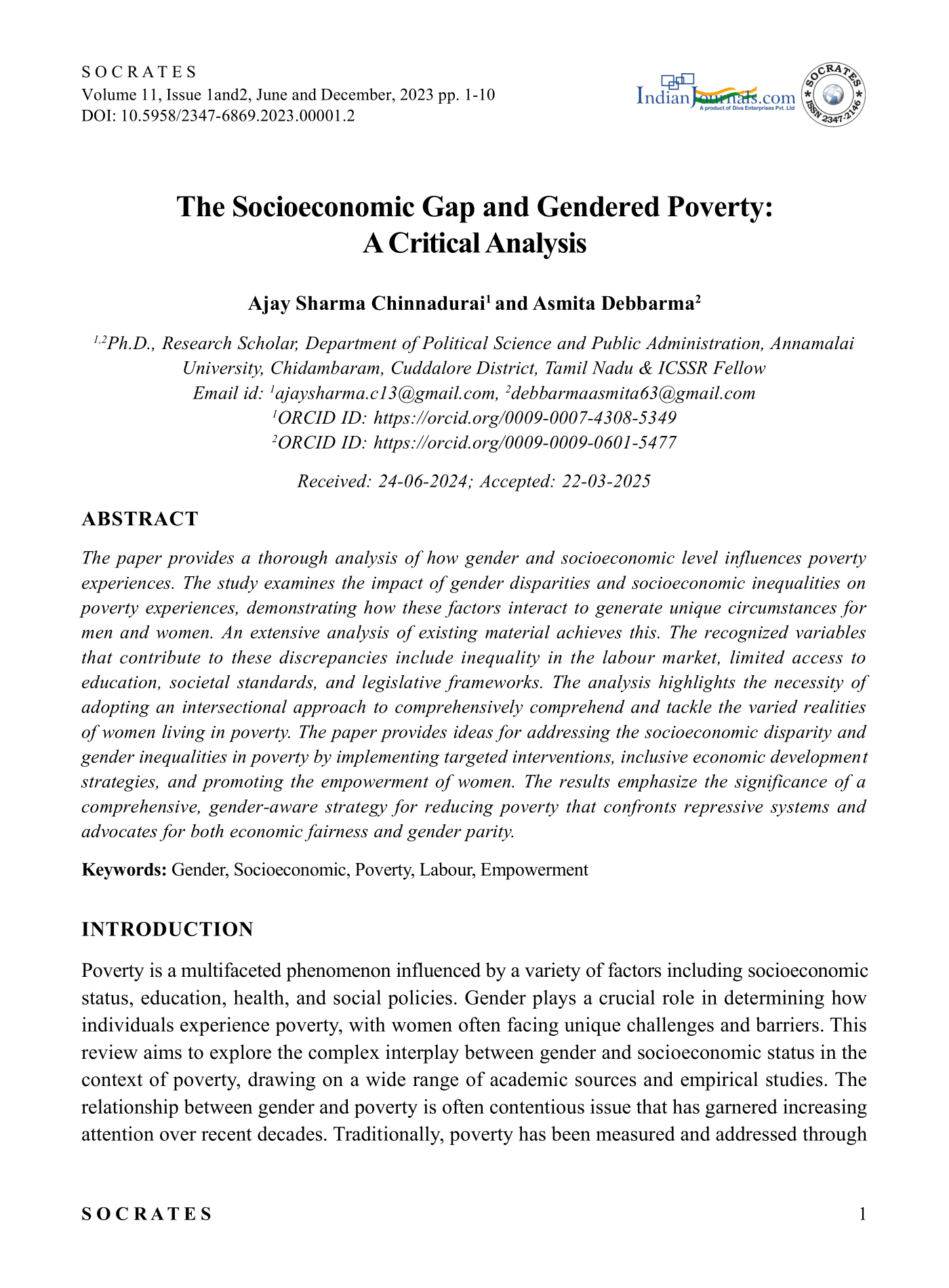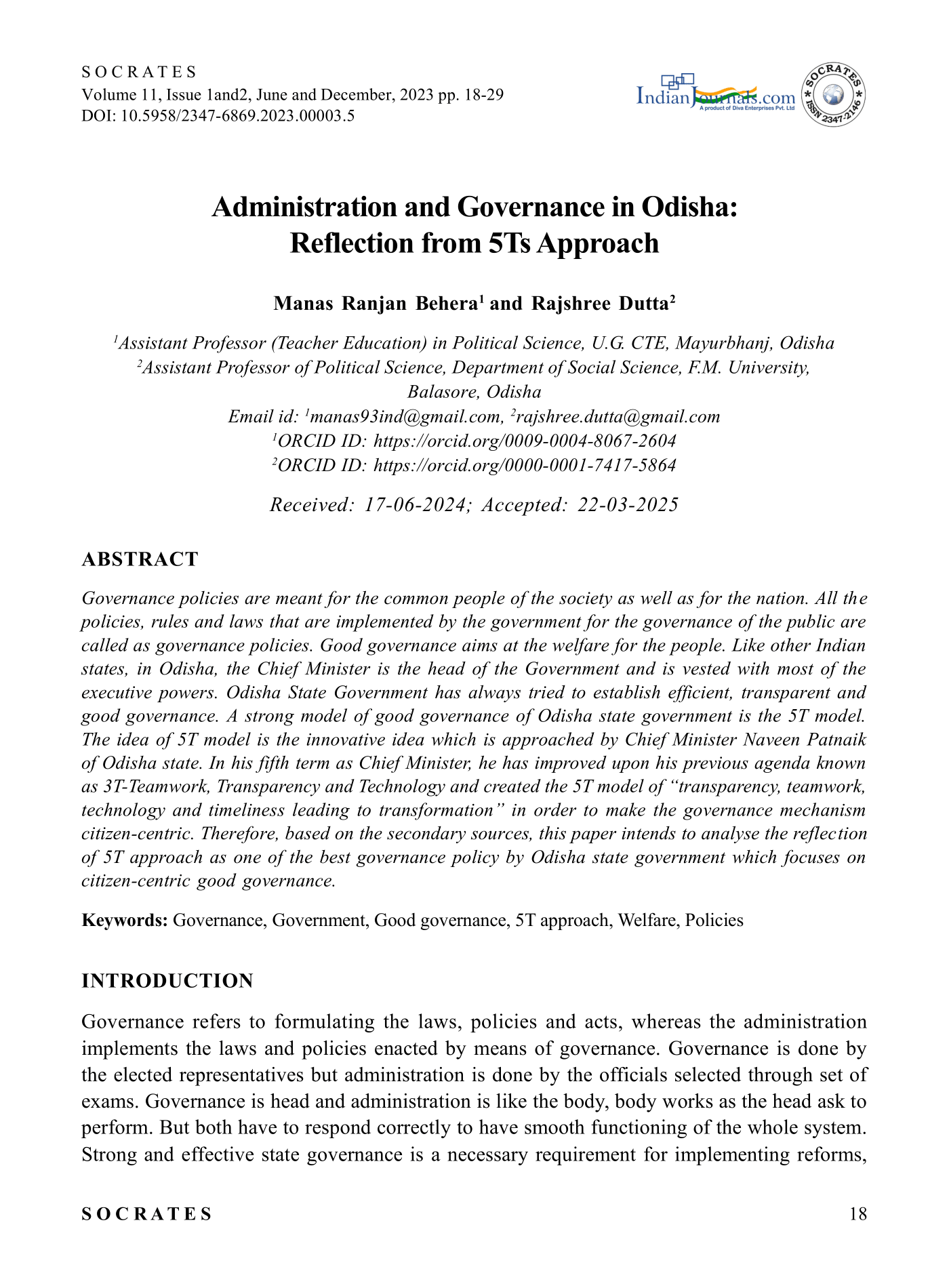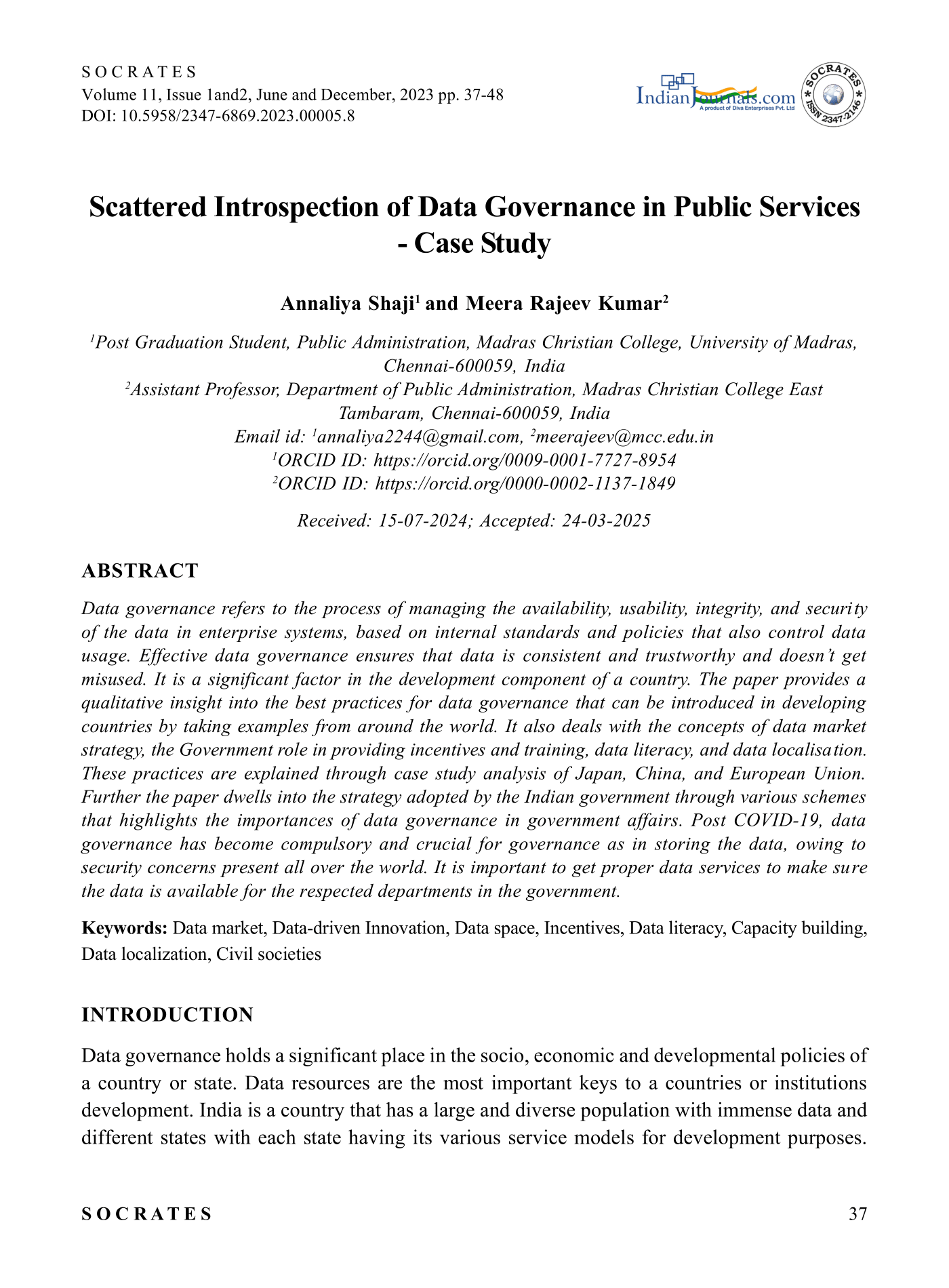
SOCRATES: An International Refereed (Peer-Reviewed) and Indexed Scholarly Journal in Public Policy, Public Administration, and Philosophy.
Editor-in-Chief: Prof. (Dr.) Manoj Dixit, Vice-Chancellor, Maharaja Ganga Singh University, Bikaner, Rajasthan, India.
- ISSN Print: 2347-2146
- ISSN Online 2347-6869
- Frequency: Biannually (June and December)
- Language: English
- Broad Subject Category: Social Science
- Covered Subjects/Disciplines:
- Public Policy, and Public Administration
- Philosophy
Indexing: EBSCO, Crossref DOI, Google Scholar, OCLC WorldCat, BASE (Bielefeld Academic Search Engine) and many more.
Journal Coverage Includes:
- Research articles: Original research by author(s)
- Review articles: Significant reviews of original research
- Short communications: Brief research updates, news, views, and articles
- Case studies: Analytical findings of individual cases
- Research methods: Reports on new research methods
- Opinion papers: Articles presenting individual or group opinions
- Observations (R&D): Expressing observations on research and development methods, experiments, tests, and findings
- Special articles: Invited articles, memorial lectures, working papers, special papers, expert views, and comments
- Standards: Documents establishing uniform engineering or technical specifications, criteria, methods, processes, or practices
- Report (R&D): Detailed non-serial publications providing information, statements, opinions, and findings on specific topics
- Proceedings papers: Papers published at conferences, symposia, seminars, workshops, or summarizations of all conference proceedings papers.
Announcements
Current Issue
Vol. 11 No. 1 and 2 (2023): January-December
The regular issues of SOCRATES are always diverse. They are not labelled as special issues, but the variety of themes and topics presented in each issue makes them unique. This issue is no exception. This issue addresses critical topics such as poverty, gender inequality, violence against women, governance, education, and data management—issues that are interconnected and essential for policymaking and societal development. Beyond presenting the current realities, the articles in this issue call for concrete action.
The first article in this issue, authored by Ajay Sharma Chinnadurai and Asmita Debbarma, fulfils the need for an intersectional approach to understanding poverty. It emphasizes how socioeconomic and gender disparities create distinct challenges. The authors analyse how gender and socioeconomic status influence experiences of poverty, demonstrating how these factors interact to create unique circumstances for men and women.
The second article, authored by Purna Laxmi Jamatia, examines the nature of violence against women, with a particular focus on the experiences of employed and unemployed women. The study highlights the alarming prevalence of violence in various forms and the differing challenges faced by women in different employment situations.
The third article, by Manas Ranjan Behera and Dr Rajshree Dutta, presents an analysis of the 5T model of governance introduced by the Odisha state government. Based on secondary sources, the paper evaluates how the 5T approach—transparency, teamwork, technology, and timeliness leading to transformation—has established citizen-centric governance in Odisha.
The fourth article, authored by Wapangnaro Imchen, investigates primary school educators' perspectives on the challenges they face while teaching students with intellectual disabilities, autism spectrum disorder, learning disabilities, or attention deficit hyperactivity disorder (ADHD). The study provides insights into the struggles faced by educators and highlights the need for better training and resources.
The fifth article, by Annaliya Shaji and Dr Meera Rajeev Kumar, explores best practices for data governance in developing countries, drawing on examples from around the world. The paper discusses key aspects such as data market strategy, government incentives, data literacy, and data localization. It also analyses the Indian government’s initiatives to strengthen data governance, emphasizing its growing importance in the post-COVID era.
The articles in this issue emphasize the urgent need for targeted policy reforms to address socioeconomic and gender disparities, promoting a more equitable society. They also highlight the importance of stronger legal and social measures to protect women from violence and combat its widespread prevalence. Additionally, the articles stress the need for greater investment in education and teacher training to support students with disabilities, ensuring educators have the necessary skills to create inclusive learning environments. The adoption of transparent and efficient governance models, such as the 5T approach, is presented as a means to enhance citizen-centric governance and improve public administration. Finally, the issue underscores the importance of strengthening data governance frameworks to ensure security, accessibility, and accountability in the digital era, as data becomes increasingly crucial to governance and development.
As a serious scholarly publication, SOCRATES is committed to shedding light on critical societal issues. We encourage further research, policy interventions, and public discourse based on the findings presented in this issue.
Editors
Prof. (Dr.) Manoj Dixit
Vice-Chancellor, Maharaja Ganga Singh University, Bikaner, Rajasthan, India.
Dr Saurabh Chandra
Assistant Professor – Public Administration, Assam Don Bosco University, Guwahati, India.
Published: 18-04-2025






